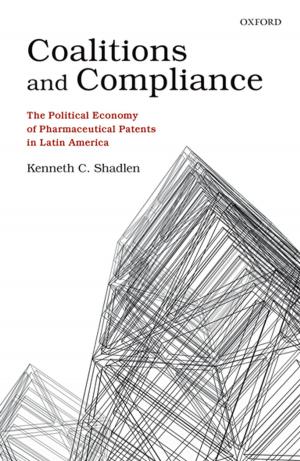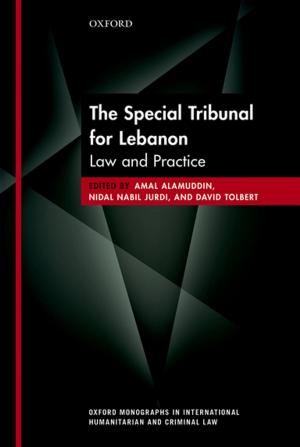Human Rights and the United Kingdom Supreme Court
Nonfiction, Reference & Language, Law, Civil Rights, Social & Cultural Studies, Political Science| Author: | Brice Dickson | ISBN: | 9780191655869 |
| Publisher: | OUP Oxford | Publication: | March 28, 2013 |
| Imprint: | OUP Oxford | Language: | English |
| Author: | Brice Dickson |
| ISBN: | 9780191655869 |
| Publisher: | OUP Oxford |
| Publication: | March 28, 2013 |
| Imprint: | OUP Oxford |
| Language: | English |
How does the UK Supreme Court approach human rights law? This book presents the first comprehensive overview of the human rights jurisprudence of the Court, analysing the opinions expressed by the current Justices and their predecessors, both judicially and extra-judicially. It criticizes the judges for not developing the common law in a way which supplements the Human Rights Act, for not making imaginative enough use of that Act, and for adopting an attitude to Convention rights which is often out of step with the jurisprudence of the European Court of Human Rights in Strasbourg. After setting the scene by explaining the constraints which are placed on the Supreme Court Justices, the book considers how human rights are conceptualized by the Court in general and how in particular the procedural questions thrown up by the Human Rights Act have been dealt with so far. It then examines on a right-by-right basis the Justices' position on all the Convention rights and those additional international human rights standards which have been incorporated into UK law. Focusing on the views expressed by individual judges, the book details the many differences of opinion which have come to light and characterizes the prevailing positions, before attempting to predict what stance may be adopted in future on new issues. The book offers an invaluable resource for any practitioners bringing human rights cases before the Court, and its critical arguments on the state of UK human rights law will be essential reading for all academics working in European human rights law.
How does the UK Supreme Court approach human rights law? This book presents the first comprehensive overview of the human rights jurisprudence of the Court, analysing the opinions expressed by the current Justices and their predecessors, both judicially and extra-judicially. It criticizes the judges for not developing the common law in a way which supplements the Human Rights Act, for not making imaginative enough use of that Act, and for adopting an attitude to Convention rights which is often out of step with the jurisprudence of the European Court of Human Rights in Strasbourg. After setting the scene by explaining the constraints which are placed on the Supreme Court Justices, the book considers how human rights are conceptualized by the Court in general and how in particular the procedural questions thrown up by the Human Rights Act have been dealt with so far. It then examines on a right-by-right basis the Justices' position on all the Convention rights and those additional international human rights standards which have been incorporated into UK law. Focusing on the views expressed by individual judges, the book details the many differences of opinion which have come to light and characterizes the prevailing positions, before attempting to predict what stance may be adopted in future on new issues. The book offers an invaluable resource for any practitioners bringing human rights cases before the Court, and its critical arguments on the state of UK human rights law will be essential reading for all academics working in European human rights law.















